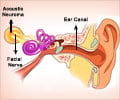Researchers manage to characterize the complete epigenomes of the most frequent tumors, including those of colon, lung and breast cancer.

‘Problems with the body's immune system can lead to tumors. Tobacco causes more deaths from cancer than any other environmental substance.’





"Our analysis has allowed us to get a first unbiased look at all the tumor cell methylomes in solid tumors," says group leader Dr. Manel Esteller. "We have not only found that many anti-cancer genes specifically slow down their activity. in the cancer-affected organs, but we have also shown that there are other alterations in distant chromosomal regions that affect these organs, since in the three-dimensional world of the cells these sequences are in very close relative positions." Tumor inhibitory genes are known to lose their protective function if a certain chemical modification ("epi-genetic", that is, over the gene) is added. The main modification is usually a stop signal called DNA methylation. The human genome has 28 million candidate points to be regulated by this modification, but the most used techniques only allow researchers to study 1 million points. The IDIBELL study overcomes this barrier.
At the same time, the research shows that sometimes there are long DNA fragments in which all neighboring genes undergo alterations of their chemical signals, as if they were blocks simultaneously altered in an epigenetic way.
"This is just the very beginning", says Dr. Esteller. "All the data obtained in this study are now publicly accessible and will allow new bioinformatic analyses that will surely provide us with more clues as to the origin and progression of these tumors."
Source-Eurekalert









